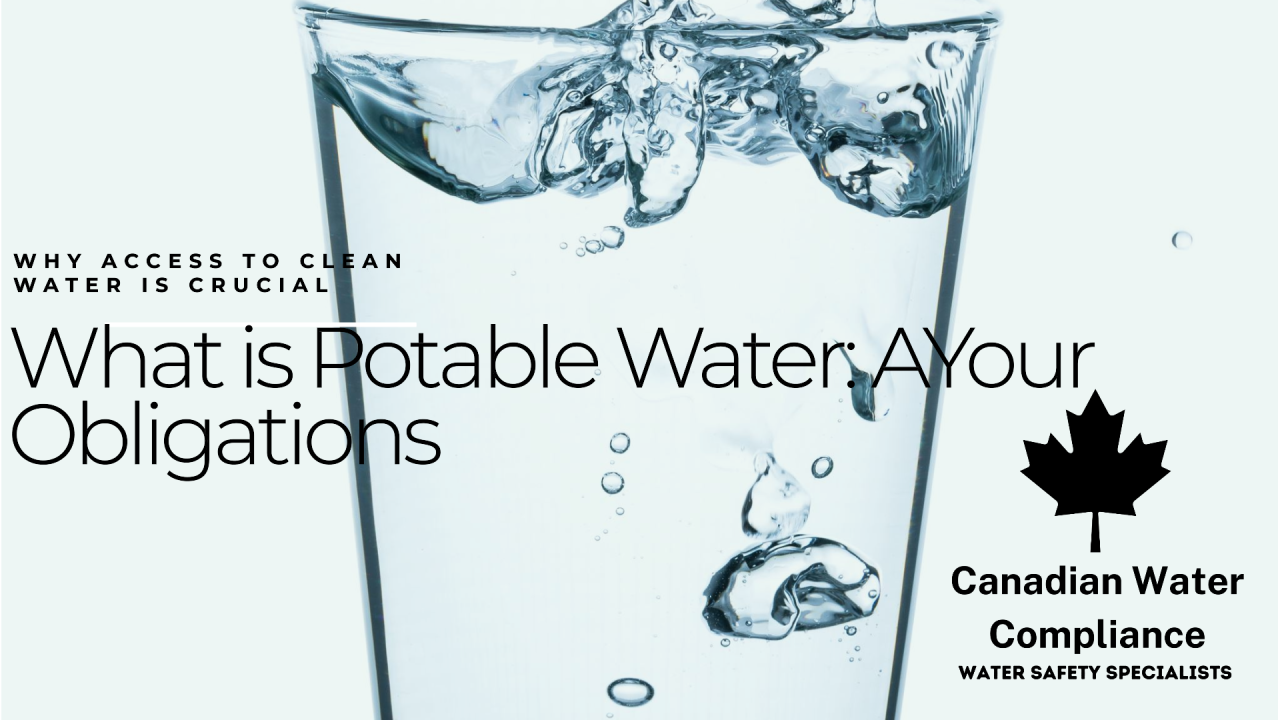
Written By: Canadian Water Compliance | On
In Ontario, the safety of drinking water is paramount, especially for commercial establishments that serve the public. The Clean Water Act, 2006 and the Safe Drinking Water Act, 2002 form the legislative backbone for potable water standards and testing requirements in the province.
Potable water, as defined by the Safe Drinking Water Act, is water that is fit for human consumption. It must be free from contaminants that could pose a risk to human health. This definition applies to all water intended for drinking, food preparation, and personal hygiene in commercial settings such as hotels, office towers, shopping malls, and manufacturing plants.
The Safe Drinking Water Act mandates regular testing to ensure that water quality meets stringent safety standards. This requirement stems from the Act's primary objective to protect human health through the control and regulation of drinking water systems. For commercial businesses, compliance with these regulations is not just a legal obligation but a crucial aspect of public health protection.
Commercial buildings that supply water to the public, including hotels, office towers, malls, and manufacturing plants, are classified as non-municipal drinking water systems under the Safe Drinking Water Act. As such, they must adhere to specific testing regimes:
Microbiological parameters: At least once every two weeks
Chemical parameters: Varies based on the parameter, ranging from quarterly to annually
Lead: Twice annually in designated facilities (such as schools and daycares)
E. coli and total coliforms
Chlorine residual (if used for disinfection)
Nitrates and nitrites
Lead, copper, and other metals
Various chemical contaminants as specified in the regulations
Failure to comply with the testing requirements can result in severe penalties under the Safe Drinking Water Act:
Fines up to $50,000 for individuals and $500,000 for corporations per day of violation
Imprisonment for up to one year for individuals
Additional fines equal to any monetary benefit acquired by the offense
Commercial establishments must recognize that once they provide water to the public, they become responsible for ensuring its safety through regular testing. This applies to:
Hotels providing water in rooms and public areas
Office towers with drinking fountains or kitchen facilities
Shopping malls with food courts and public restrooms
Manufacturing plants offering drinking water to employees or visitors
By conducting regular potable water tests, these businesses not only comply with legal requirements but also demonstrate a commitment to public health and safety.
The Clean Water Act and Safe Drinking Water Act together create a robust framework for protecting Ontario's drinking water sources and ensuring the delivery of safe, potable water to consumers. Commercial businesses play a crucial role in this system by adhering to testing requirements and maintaining high water quality standards. Regular potable water testing is not just a legal obligation—it's a fundamental responsibility to protect public health and maintain trust in our water systems.